From the Desk of MGFS
Last year during the height of the pandemic we wrote a column that we called ‘Quick Recap and Fun.’ We are tweaking the format in 2021 and will now be writing to you quarterly. We hope you will find these articles to be easy to follow “must reads”. Since we will be writing this quarterly, we have additional content. Of course, if important circumstances arise between these reports, we will get that information to you right away.
Please see the following sections below (and note the general economic and market commentary has been written without political opinions):
- Behavioral Finance
- Notable Headlines
- Economic News
- Market News*
- Funnies
Behavioral Finance
What is on Your Mind?
We hear it in conversations that we are having with you. Many of you are asking us whether you should be concerned about the short and long-term direction of fiscal and monetary policies – government spending. You are concerned about inflation, interest rates, market valuations, and volatility on the horizon. You want to know what to do.
Our Views
part to the amount of government led spending, the shorter-term risks are lower, and markets should continue to rise.
- There is always going to be uncertainty and complexity in the world. As we point out, there are mixed economic signals. However, take some comfort in the knowledge that when the economy slows down and markets decline, there will always be opportunities for growth (and good buys!). Not every sector or every company will participate in each market decline. As well, the U.S economy is very resilient. Ask us how your portfolios are built and managed to withstand the ambiguity of the market.
- The U.S economy remains strong for now as compared to those of our global partners and adversaries. New innovations and technology will continue to lead the way into the future.
- At MGFS, our mantra has always been to ‘proceed with caution’ regarding the economy and markets. We cannot change what is going to happen, but we can help you form clarity and confidence through financial education and careful planning.
- We believe it is critical to stay focused on your long-term goals and to have a suitable investment strategy.
- If you are approaching or in retirement, we understand you feel most vulnerable. Retirement income planning is something we will periodically review with you. We seek to consider your short-term needs and to achieve them over the long-term.
- It is always important to stay calm and rational. Remember that markets will always have normal, short-term corrections. This is part of the experience when investing. As many of you are aware, market conditions will change quickly. Fear is a stronger emotion than greed, and we are acutely sensitive to risk management and your personal investment strategies.
- MGFS will continue to monitor economic data and market indicators and keep you informed. While there are many important indicators to monitor, we believe the most impactful ones are jobs, corporate profits, GDP growth, inflation, and interest rates. We also watch for changes in monetary, fiscal and tax policy and the above both domestically and globally.
- There are significant amounts of headline news and noise in the world today and much of it can be depressing. If possible, try to tune out the noise and instead live your life to the fullest! Here is a great quote for you to live by: “Attitude is everything. Change your attitude and you change your life. You cannot control what happens to your life, but you can control how you respond to it. The way you choose to respond to it is a reflection of your attitude. By changing your attitude, you change your perspective and change your life.” (Roy T. Bennett)
- Our goal is to help provide clarity, direction, and confidence and to be with you every step of the way. Please reach out to us if you have questions or concerns. We are here for you.
Notable Headlines
- Congress passes $1.9 trillion stimulus bill.
- As vaccine implementations are accelerating rapidly, we are getting closer to herd immunity.
- There has been a surge of illegal immigrants at the Mexican border crossing into the U.S.
- The House of Representatives passed HR1 which is a bill designed to change election laws and would give the federal government a bigger role on how elections are conducted.
- The Biden administration announces intentions toward corporate and individual tax increases along with a $2-4 trillion infrastructure bill.
- Universities appear to be inviting their students to return for in-person learning.
- Cubbies and Sox invite fans back; Chicago allows up to 20% stadium capacity for games.
On the lighter side: Turn your frown upside down! Remember, April showers bring May flowers (and from Adam’s New England wife “what do May-Flowers bring…Pilgrims!”)!
Economic News
- Economic data is showing that the economy has grown at a fast rate in the first quarter. GDP is projected to grow throughout 2021, some suggesting at an approximate annual rate of 6.6%. This is due to additional spending from federal stimulus efforts and the economy continuing to reopen.
- The Federal Reserve policy is highly expansive, injecting $120 billion per month in new liquidity into the economy. Chairman Powell has signaled the Fed’s intention to maintain this loose monetary policy throughout 2021 and perhaps through 2022.
- The measure of money supply in the U.S, known as the M2 measurement, has risen 25% over the past year, the fastest on record. The Fed intentionally increased liquidity after the economy shut down a year ago. This could have long-term inflationary effects as the increased money supply circulates throughout the economy.
- While the Fed has indicated it intends to keep interest rates low, there has been a jump in longer term interest rates which tend to rise with expectations of inflation.
- While overall inflation has averaged around 2% growth thus far, there will be increased inflationary pressures as the economy rebounds, more Covid restrictions are lifted, and spending grows, leading further to potential supply and inventory shortages. The economy is already experiencing this phenomenon in the new construction sector, among others. Inflation indicators are currently showing signs of higher prices for copper, aluminum, lumber, and steel scrap. There are also shortages in computer chips and other supply chains. (As you can see, inflationary pressures are a point we are emphasizing throughout this report and something we are keeping in sight).
- The federal deficit in 2020 was a massive number, close to $3.2 trillion. The projected deficit in 2021 could be slightly higher (without consideration toward the impact of the potential infrastructure bill). The Federal Reserve is manufacturing approximately 40% of the growing deficit while the Treasury Department is financing the balance through public bond offerings (such as but not limited to creating more Treasuries through auctions…).
- The national debt we are accumulating is growing rapidly and presents a longer-term concern, particularly in a rising interest rate environment. As the debt increases in size and it costs more to hold with higher rates, it bears a greater cost on the economy.
- Let us magnify the impact of increasing interest rates on debt by expanding upon the importance of debt management with businesses. Consider, for example, the impact on companies that have borrowed (issued bonds) for 5 years at a rate of 3%, and they now need to re-issue matured debt (request more loans in the form of bonds) at 5%. This increase in the cost/interest rate of debt for companies makes it even more difficult to hire, invest and grow.
- The housing market is booming in large parts of the country. The trend is that many people are leaving big cities to move into the suburbs or rural counties due to safety concerns.
- Increasing corporate taxes is a consideration of the new administration (personal income tax hikes will be left for another discussion). If passed, this could lead to slower economic growth, making U.S corporate tax rates less competitive when compared to those of other nations.
Market News
- As related to the measurable increase in GDP (highlighted in Economic News), CIBC (Canadian Imperial Bank of Commerce) suggests that corporate revenues historically exceed GDP by approximately 2.5 times. While manufacturing supply is down and challenged to keep up with consumer demand, this anticipated cash flow should mean stronger earnings and market performance.
- Overall, there are reasons to be bullish in the shorter-term with potential longer-term concerns.
- The explosive increase in liquidity and money supply continues to provide a strong tailwind, if not a benefit, for the stock market.
- Markets are primarily surging as a flood of new spending is anticipated from the stimulus bill; many households have pent up spending demand as more restrictions are lifted.
- The market may experience headwinds in the future if the spreads between short and long-term interest rates begin to narrow or when bond interest rates become competitive with dividend yields on stocks.
- Higher tax rates, if passed, could reduce the value of stock earnings and therefore stock valuations.
The world is constantly changing. From both educational and practical standpoints, we feel that the content of our reports should reach as many people as possible and hope you do too. Please let us know if you would like us to add anyone to our mailing list.
Have a wonderful week!
Barry, Adam, & Tom
*The information in this article is derived from years of experience and the following sources: Canadian Imperial Bank of Canada, economist Robert Genetski, economist Bryan Wesbury.




